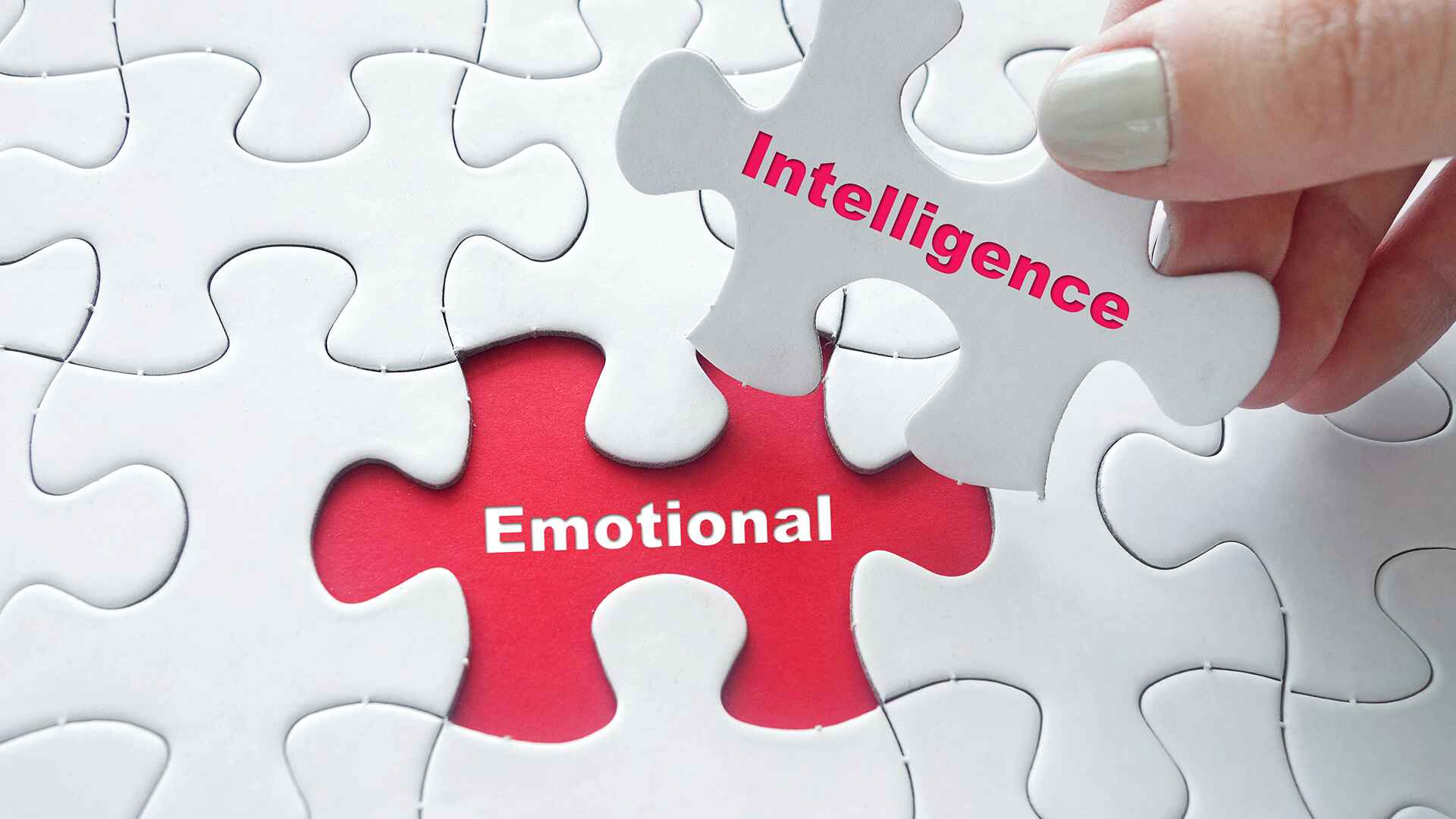
Emotions are woven in every interaction you have whether at work or at home. Emotions influence your reactions in all types of situations. Additionally, they determine whether you collaborate during conflicts or not.
Why emotional intelligence is important?
When emotions run high, brain functioning changes and often reduces basic cognitive abilities, decision-making capabilities, and interpersonal skills. Emotional intelligence (EI) is important to positively impact people and overall organization. It plays a crucial role to develop people, teams, and an adaptive and engaging organizational culture.
Schedule a call with a Pragati Leadership expert to discuss how we can support your strategic objectives.
Schedule your CallEI is the ability to be aware, control, and express emotions. Being able to connect with people is important for leaders to improve productivity and engagement. Developing EI enhances self-awareness and listening abilities and an effective emotional intelligence training program can be beneficial.
Developing Emotional Intelligence Training for leaders
The below-mentioned four components can be beneficial to develop an effective training program:
Self-awareness
The first step is for leaders to do an in-depth assessment of their emotional needs, strengths, and weaknesses. They must monitor their emotions and reactions in everyday situations, which will keep them attuned to their behaviour during interactions.
Mindfulness, which is being present and aware of physical, mental, and emotional reality can help in developing EI. An effective program will teach participants to take purposeful pauses through the day. Additionally, seeking candid feedback from their people will help them recognize their limitations and work on these.
Self-management
This skill can be built by including deep breathing and meditative exercises in the training program. These can help in stress management and staying grounded. The objective is to learn self-control to ensure appropriate reactions rather than instinctive.
Social awareness
Social awareness enables leaders have effective interaction and develop strong relationships with people across different organizational levels. Empathy that allows you to tune into other people’s needs and emotions is a crucial component of social awareness.
Socially aware leaders have three types of empathy, which include cognitive empathy that allows them to understand how others think, emotional empathy allowing leaders to know how others people, and empathetic concern showing caring about others.
Leaders can develop this skill through observation, curiosity on what matters to other people, active listening, and being attentive to what isn’t said. Being sensitive to emotional needs with compassion, perspective, and respect helps in developing emotional intelligence. Including exercises that allow participants to identify and interpret body language and vocal tones can be effective in developing EI.
Relationship management
Another important component of developing emotional intelligence training for leaders is learning ways to build and maintain positive relationships. Skills like authenticity, collaboration, communication, conflict resolution, and trust building are important.
Often the reason for conflicts is lack of social awareness and being unaware on emotions that cause frictions in these situations. However, leaders who have participated in an EI training program can see conflicts from the perspective of other people and respect opinions even if they don’t agree with them.
Another important factor that affects relationship management is providing constructive feedback to others. Creating a psychologically safe environment developed over a period by offering support and encouragement is an excellent way to offer constructive feedback. When a person feels that their leaders have their best interests, constructive feedback is a powerful motivator to bring in behavioral changes and improve performance.
Benefits of Emotional Intelligence Training for leaders
An effective emotional intelligence training program can help you to understand yourself and make your emotions work for you. At the end of the program, participants can:
- Understand EI and its importance for leaders
- Enhance personal and organizational resilience
- Use the skills to improve leadership abilities and develop more effective relationships
- Leverage EI to manage challenges and difficult situations
In the constantly changing world and work environment, companies require leaders who are proactive in their responses instead of being reactive. Moreover, empathetic and caring leaders are able to motivate people and improve productivity and performance. To build a resilient workforce across all levels, companies need to invest in skills, such as collaboration, conflict resolution, decision-making, and motivation. This ensures organizations provide communicative, engaging, and trusting culture that allows people to deliver their best in all circumstances.
Unlock your leadership potential with Pragati Leadership’s specialized Emotional Intelligence Training. Elevate your skills today for lasting success. Contact us now!
Share on Social Channels
Our Categories
Categories
- Behaviorial (7)
- Blog (279)
- Certified People Manager Program (5)
- Coaching (9)
- Corporate Trainers (7)
- Developing Collaboration (12)
- Emotional Intelligence Training (13)
- Executive Leadership Program (30)
- First Time Manager Training (13)
- Growth Mindset Course (3)
- Inspirational Leadership (23)
- Inspiring and Successful Leadership Awards (23)
- Leadership Awards (44)
- Leadership Development (127)
- Leading Virtual Teams (6)
- Management Development (29)
- Marketing (2)
- Negotiation Skills Training (8)
- Organizational Transformation (25)
- Others (24)
- Stakeholder Management (3)
- Strategic Leadership Development Program (4)
- VUCA Leadership (2)
- Wholesome Leadership (23)
- Women Leadership (16)
Recent Insights
“Leadership is not about a title or a designation. It’s about impact, influence, and inspiration”....
“We need women at all levels, including the top, to change the dynamic, reshape the...
“Executive presence isn’t something you are born with – it’s something you can cultivate. And...
“Transformational leadership focuses on developing, inspiring, and motivating followers to reach their full potential rather...
“Every expert was once a beginner. Embrace the journey”. Startups face unique challenges and have...
